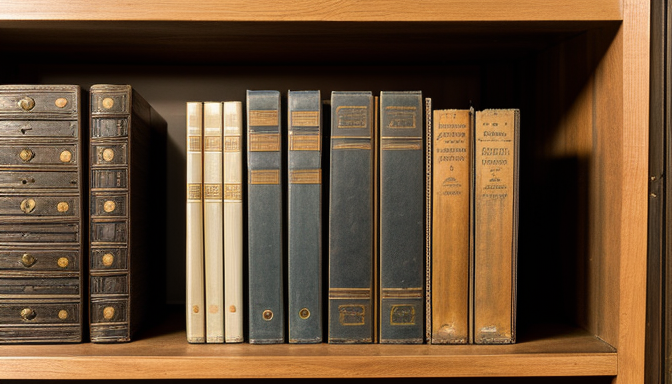Have you ever wondered what stories the past holds? Archives are like treasure chests, filled with historical gems waiting to be discovered. They play a crucial role in preserving our history, allowing us to connect with our ancestors and understand the world they lived in. Imagine flipping through letters written by your great-grandparents or exploring photographs that capture moments long gone; these archives breathe life into history, making it tangible and real.
But why should we care about preserving these records? Well, archives serve as a foundation for research, providing historians and scholars with primary sources that illuminate the complexities of past events, cultures, and societies. Without these valuable resources, our understanding of history would be like a puzzle with missing pieces. By studying these records, we can piece together narratives that shape our identities and inform our futures.
However, the journey of preservation is not without its challenges. Archives face threats from environmental factors, the digital age, and limited funding. Institutions must employ various preservation techniques to ensure these records remain accessible. This involves everything from climate control to digitalization efforts. So, the next time you think about history, remember that archives are not just dusty old boxes; they are the guardians of our collective memory, ensuring that future generations can learn from the past.
The Role of Archives in Historical Research
Archives are like treasure troves of the past, holding invaluable primary sources that breathe life into historical narratives. Imagine sifting through letters, photographs, and documents that once belonged to notable figures; it’s like stepping into a time machine! These records not only tell us what happened but also provide context about the people, cultures, and societies of yesteryears. For historians and researchers, archives are essential, acting as the foundation upon which they build their understanding of history.
When delving into research, scholars often rely on archives to uncover untold stories and hidden truths. Without these resources, many aspects of our past might remain obscured. For instance, the letters of a soldier from a forgotten war can reveal personal experiences that statistics alone cannot convey. This is why the role of archives in historical research is not just significant; it is crucial.
Moreover, archives also foster interdisciplinary studies, bridging gaps between history, sociology, anthropology, and more. They invite researchers from various fields to explore connections that might otherwise go unnoticed. This collaborative nature enriches our overall understanding of the past, making it a vibrant tapestry woven from countless threads. So, the next time you think about history, remember the silent guardians of our collective memory—archives!

Preservation Techniques and Challenges
When it comes to preserving our rich tapestry of history, archives play a crucial role. They are like time capsules, safeguarding invaluable records that tell the stories of our past. However, the journey of preservation is not without its hurdles. One of the primary techniques used in archival preservation is environmental control. This involves maintaining optimal temperature and humidity levels to prevent deterioration. Imagine storing an ancient manuscript in a damp basement—disaster waiting to happen! Instead, archives often utilize climate-controlled environments to ensure that these treasures remain intact for future generations.
In addition to environmental controls, digitization has emerged as a powerful ally in the preservation battle. By converting physical documents into digital formats, archives can not only protect the originals from wear and tear but also make them more accessible to researchers and the public. However, this process comes with its own set of challenges, such as the need for ongoing funding and the ever-evolving nature of technology. What happens when the next big thing in digital storage comes along? Will our current formats still be readable?
Moreover, funding limitations are a significant challenge for many archival institutions. Without sufficient resources, maintaining and upgrading preservation techniques can feel like trying to fill a bottomless pit. Many archives rely on grants, donations, and community support to keep their doors open and their collections safe. It’s a constant balancing act, ensuring that the past is preserved while also making room for the future. So, the next time you think about history, remember the unsung heroes working tirelessly behind the scenes to keep our stories alive.
Frequently Asked Questions
- What are archives and why are they important?
Archives are collections of historical documents and records that are preserved for future reference. They are important because they provide insight into our past, helping us understand cultural, social, and political developments over time.
- How do archives contribute to historical research?
Archives serve as treasure troves for historians and researchers, offering primary sources that reveal the nuances of past events. This access allows for a deeper exploration of history, making it possible to construct accurate narratives and understand the context behind significant occurrences.
- What challenges do archives face in preservation?
Preserving archival materials is no small feat! Archives encounter challenges like environmental threats, the need for digitalization, and often, limited funding. These factors can jeopardize the longevity and accessibility of valuable historical records.
- How can I access archival materials?
Accessing archival materials typically involves visiting the institution housing the archives or checking their online databases. Many archives have digitized collections, making it easier for you to explore history from the comfort of your home!